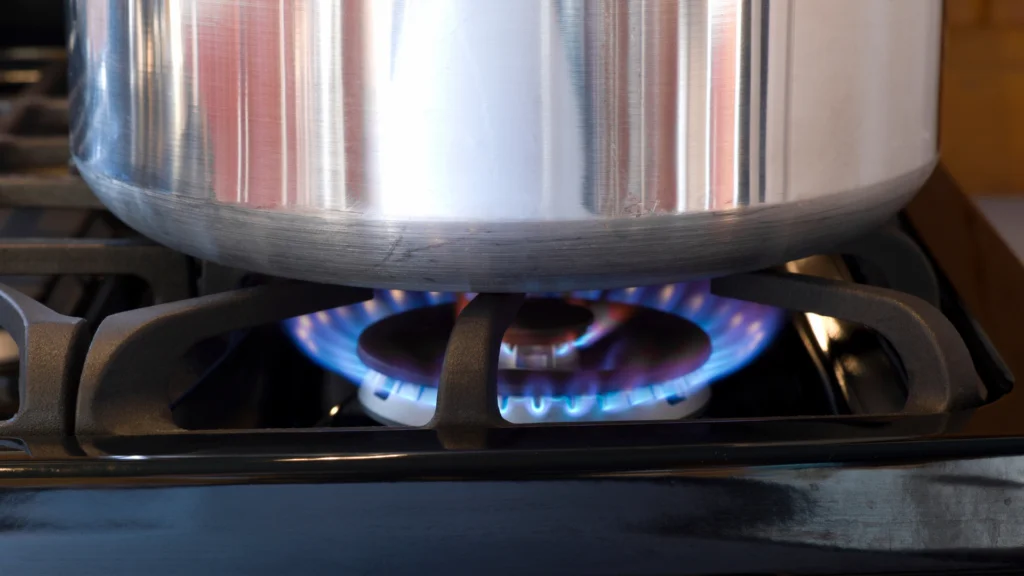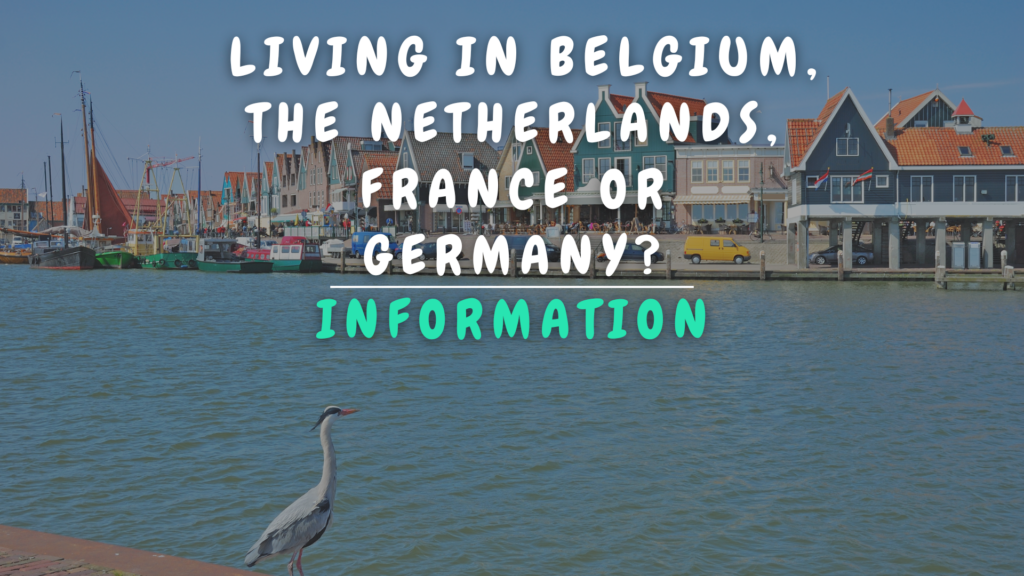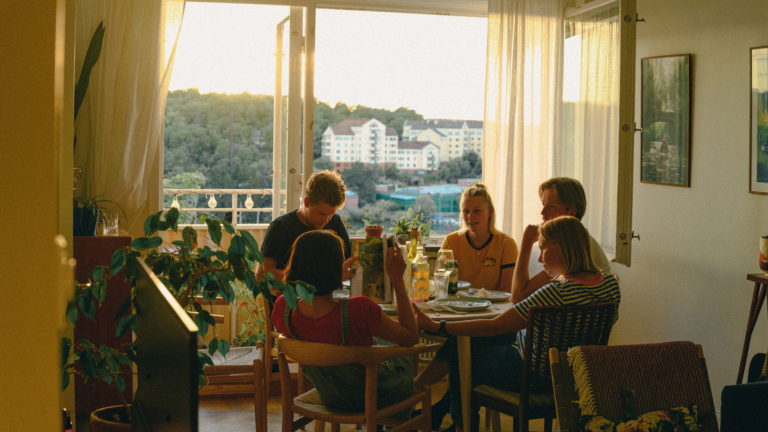Ever dreamed of moving to a neighboring country? In this article, we compare what is like to live in Belgium, the Netherlands, France or Germany.
Housing Costs
- Belgium: Housing is generally cheaper, especially outside major cities. But the cost of buying a home can add up due to high registration fees (10-12%). For example, if you buy a €200,000 house, you will soon pay an additional €20,000 in fees. Read here what costs are involved when buying a house or apartment in Belgium.
- Netherlands: In the Netherlands, especially in cities like Amsterdam and Rotterdam, houses are much more expensive. The rental market is tight, meaning there is a lot of demand for rental housing but little availability. As a result, you often pay more for a rental property or have to wait a long time for social housing. Read here why housing is so expensive in the Netherlands.
- France: Housing costs vary widely. In Paris, houses and apartments are very expensive, but outside the big cities (e.g., in Provence), house prices are lower. France offers a lot of both owner-occupied and rental housing.
- Germany: In Germany, renting is more common than buying, especially in large cities such as Berlin. House prices are generally lower than in the Netherlands, but in large cities such as Munich, prices are comparable to the most expensive parts of the Netherlands.
Health Insurance
- Belgium: The Belgian healthcare system is largely public, which means the government covers a large portion of healthcare costs through health insurance funds. This ensures that you pay low premiums for good healthcare coverage.
- Netherlands: Everyone in the Netherlands must get health insurance from a private insurer. The monthly cost is often higher than in Belgium and you also have a deductible amount (which is the amount you have to pay yourself before the insurance covers the rest).
- France: France has a good public system where the government covers much of the cost of health care. People pay a small premium and take out additional insurance if they want. The quality of care is very good.
- Germany: In Germany, you have both public and private health care options. Employers pay part of your premium, which helps you keep costs down. Public care is available to everyone, but if you want more, you choose private insurance.
Taxes
- Belgium: Income taxes can be high, up to 50%. But there are also benefits for homeowners such as tax deductions for mortgages.
- Netherlands: Tax is slightly lower than in Belgium, with a maximum of 49.5%. Again, there are benefits for homeowners, but the rules for mortgage interest deductions are becoming stricter.
- France: France uses a system where people with higher incomes pay a larger percentage of tax. But there are many tax breaks for families and people who own homes.
- Germany: In Germany, you pay up to 45% income tax depending on how much you earn. There are also many benefits such as deductions for families and homeowners.
Social Security
- Belgium: Belgium has a strong social safety net with extensive unemployment benefits and pensions. If you become unemployed, you often receive benefits for longer than in most other countries.
- Netherlands: The Dutch social system is also good, but unemployment benefits last shorter and the rules are stricter. Pensions are stable, but you often have to save extra for later yourself. In some cases, it is an option to arrange this through your employer.
- France: France has one of the strongest social systems in Europe. Unemployment benefits and pensions are generous, but this costs the government a lot of money.
- Germany: Germany offers a strong social safety net with strong unemployment benefits and well-supported pensions. The system is similar to France’s, but slightly more strictly regulated.

Employment
- Belgium: Employment is uneven. There are more jobs in Flanders, especially in the chemical and pharmaceutical industries. Wages are a bit lower than in the Netherlands, though. In contrast, you do get a lot of fringe benefits (car, meal vouchers, eco vouchers, public transport, fuel card, etc.).
- Netherlands: There is a lot of work in the Netherlands, especially in sectors such as technology and IT. Unemployment is low, but many people are more likely to have flexible employment contracts, which gives you less security.
- France: In France, unemployment is higher, but there is plenty of work in sectors such as technology, fashion and agriculture, especially in the big cities.
- Germany: Germany has one of the strongest labor markets in Europe, with many jobs in the auto industry, IT and health care. Jobs here tend to be more stable than in the Netherlands.
Quality of Life
- Belgium: The quality of life in Belgium is high with a focus on community, culture and green spaces. Cities such as Brussels and Antwerp offer a lively atmosphere, while smaller towns offer tranquility, space and nature.
- Netherlands: The Netherlands scores high on quality of life because of its good infrastructure, sustainability, and bicycle-friendly cities. The social system is strong and the economy is stable.
- France: France is known for its high quality of life. The country has a strong food culture, good health care and great attention to work-life balance.
- Germany: Germany offers excellent infrastructure and high standards of living. Cities are modern and well-connected, while smaller towns and villages offer a quieter lifestyle.
Supermarket
- Belgium: Supermarket prices are generally slightly higher than the European average. Basic products such as meat, dairy and bread have risen significantly in recent years. Discounters such as Aldi and Lidl offer cheaper alternatives.
- Netherlands: Dutch supermarkets have also recently become considerably more expensive. Especially products such as cheese, eggs and vegetables have increased significantly in price. Prices in the Netherlands are similar to Belgium, although discounters such as Lidl and Aldi are slightly more popular in the Netherlands, resulting in slightly lower prices.
- France: In France, prices vary greatly by region. In big cities like Paris, supermarkets are more expensive than in rural areas. Products such as cheese and wine are often cheaper because they are produced locally. Discounters such as Lidl also play a role in keeping prices down in France.
- Germany: Germany generally has the lowest supermarket prices of the four countries. This is partly due to the strong position of discounters such as Aldi and Lidl. Products such as meat and dairy are also relatively cheap compared to the other countries, making shopping in Germany often cheaper.
Energy
- Belgium: Energy prices in Belgium are among the highest in Europe. This is due to a high dependence on imported energy and taxes. Electricity and gas prices rose sharply in 2023.
- Netherlands: Energy prices have also risen sharply in the Netherlands due to dependence on natural gas. Gas prices rose more than 30% in 2022 and 2023. However, the government has taken measures such as a price cap to protect households from even higher costs.
- France: France has relatively stable electricity prices thanks to the large share of nuclear power in its energy mix. Gas prices did rise, but the French government introduced an energy cap to reduce costs for households.
- Germany: In Germany, energy prices (especially for gas) are among the highest in Europe. Electricity prices have also risen, partly because of the closure of nuclear power plants and dependence on natural gas. The German government has introduced price caps, but the average energy cost for a household is relatively high.

Sources: Degroof Petercam, Grenzinfo, Régie Portage, central government
Would you like to cite this article as a source? Then use:
Stiasteny, L. (2024, Sept. 11). Living in Belgium, the Netherlands, France or Germany? Apartment.be. Consulted on (date XX/XX/202X), from https://www.appartement.be/wonen-in-belgie-nederland-frankrijk-of-duitsland
Related articles:
- Why are homes so expensive in the Netherlands?
- Everything you need to know about moving to Belgium from abroad
- All costs when buying a house or apartment in Belgium






